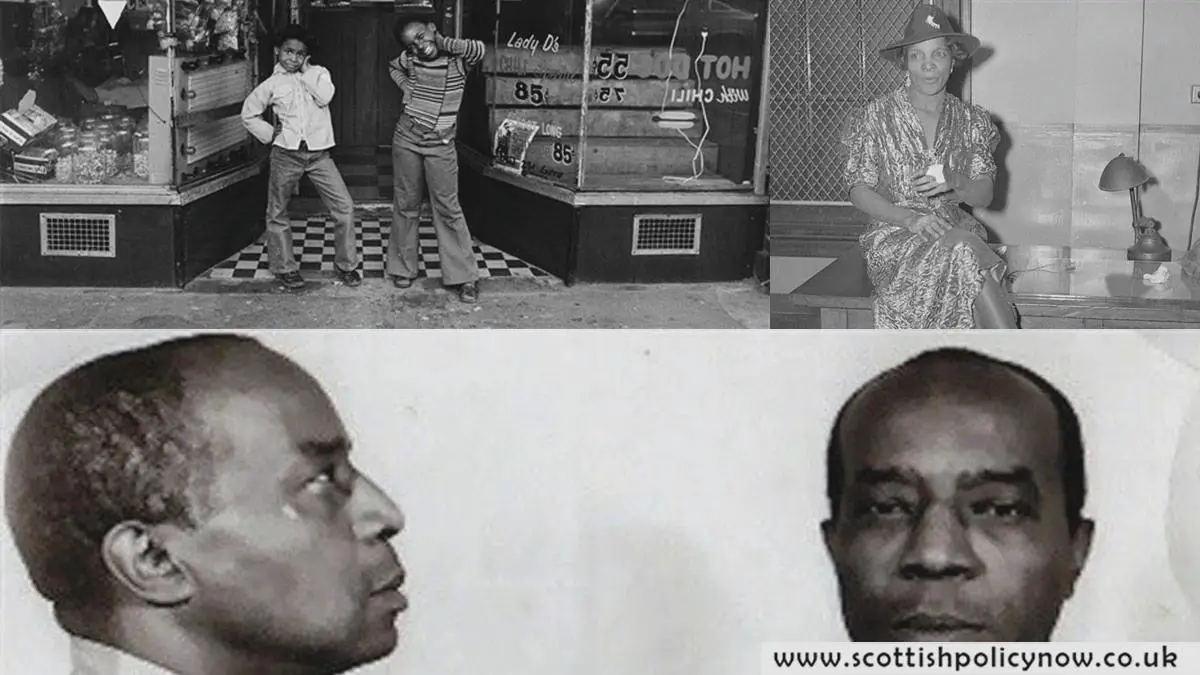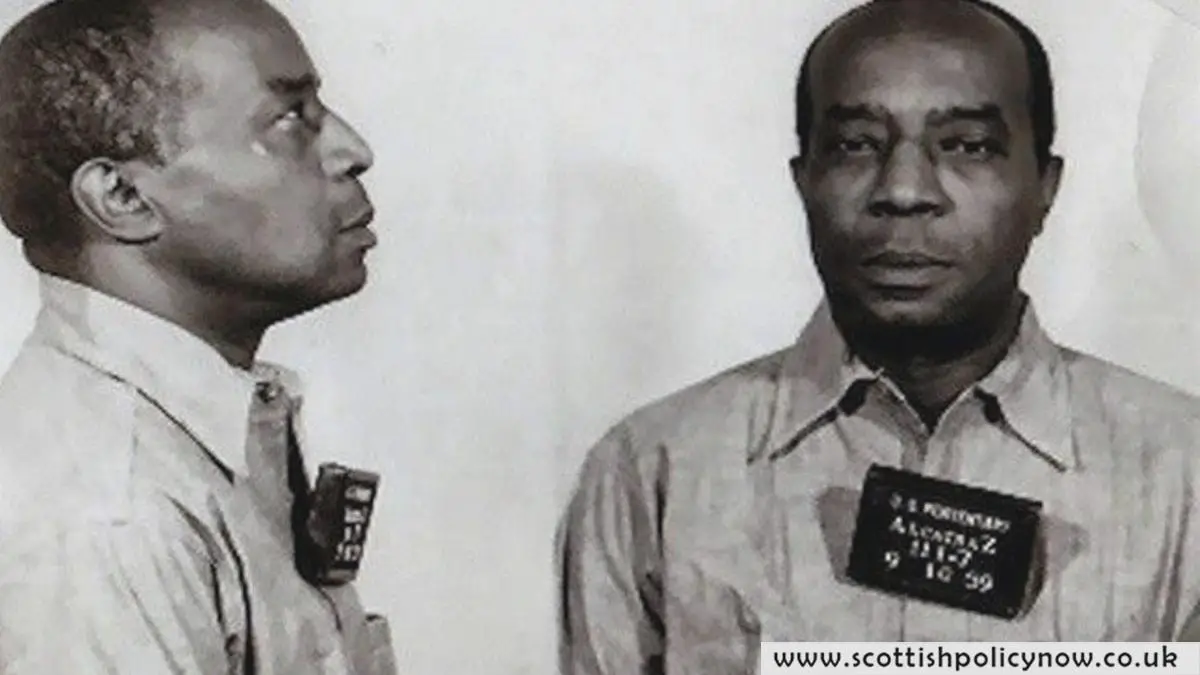For over 30 years, “Bumpy” Johnson was one of the most revered and feared criminals in New York City, also known as the “Godfather of Harlem.”
Early Years
Ellsworth Raymond Johnson was born on October 31, 1905, in Charleston, South Carolina, USA. With a bump on his head since birth, friends gave him the nickname “Bumpy,” a seemingly innocuous moniker that would accompany him throughout his notorious criminal life.

At the age of 10, Johnson’s older brother William was accused of killing a white man in their area. Fearing retaliation, Johnson’s parents relocated the family to Harlem, a predominantly African-American neighborhood in New York City.
In his early years in the unfamiliar city, Johnson faced teasing from local children due to his odd bump, Southern accent, and diminutive stature. Instead of enduring the taunts, Johnson gradually built a reputation as someone not to be messed with.
Despite aspirations of becoming a lawyer, Johnson, after high school, had to abandon his studies at New York City College due to financial constraints. He made ends meet through odd jobs like porter work, selling newspapers, and restaurant cleaning.
During one such stint at a restaurant, Johnson encountered William ‘Bub’ Hewlett, the boss of a criminal gang in Harlem. Despite being threatened, Johnson continued working without fear.
Impressed by the young man’s tough demeanor, Bub offered Johnson a role in protecting bank employees in Harlem. Soon, Johnson became one of the most sought-after bodyguards.
In addition to his security role, Johnson delved deeper into criminal activities within Bub’s gang, including armed robbery, extortion, and gambling. He became known for “going in and out of jail” throughout his twenties, ultimately serving a 2.5-year sentence for petty theft.
Upon his release in 1932, Johnson, penniless but unwilling to continue working for Bub, returned to the bustling streets of Harlem. There, he crossed paths with the esteemed Stephanie St. Clair.
Known as the “Queen of Numbers,” Stephanie ran illegal gambling operations beloved in Harlem. She managed several criminal outfits in the city, including the 40 Thieves gang, and invested in local casinos.
While working for Bub, Stephanie noticed Johnson’s intelligence, agility, and remarkable fearlessness. Despite a 20-year age difference, they quickly became close friends. Johnson became her personal bodyguard, confidant, and operative.
Rise of the “Godfather”
In his role as the “Godfather of Harlem,” Johnson demanded that all criminal activities in the area receive his approval. When a drug ring exceeded its quota, he would confiscate the surplus. Bumpy could participate in dealings with other underworld groups without prior notice.
As his wife, Mayme Johnson, once shared: “If you want to do anything in Harlem, it’s best to see Bumpy and share your plans because he runs the show here. Anything like opening a casino, drug trafficking… needs the consent of the ‘Godfather.’”
Those who disobeyed faced severe consequences. For instance, Ulysses Rollins, a former rival, underestimated Johnson’s unwritten laws.
Rollins, observing Johnson’s regular dinner routine at a local restaurant and his infrequent use of bodyguards, ambushed him one day when he let his guard down. Witnesses recounted how Rollins lunged at Johnson with a sharp knife, but the “Godfather” remained unfazed.
The two men wrestled briefly before Johnson calmly straightened his tie while Rollins lay on the ground, bloodied from multiple self-inflicted stabs. Afterward, Johnson casually walked past his opponent’s body and resumed his dinner as if nothing had happened.
Such direct confrontations were rare but always ended in a grim fate for those who dared challenge the “Godfather.” For Johnson, his rule was ironclad, a set of laws to be followed rather than questioned. If anyone dissented, Johnson was ready to take their life as punishment.
Johnson’s reputation was not solely built on power and business inherited from Stephanie. Over years as an intermediary between the mafia and Harlem’s underworld, he skillfully learned to cooperate and coexist with the mafia.
They forged a strong alliance, one of the first successful deals between Italian mafia and American criminals. With Luciano’s support and later his successors, Johnson smoothly ventured into drug trafficking, leading the trade in Harlem.
During his reign, Johnson turned Harlem into an organized crime zone. Criminal groups could work independently or in collaboration but without monopolizing or encroaching on each other’s territories. Thanks to Johnson’s mediation, criminal groups worked harmoniously with the Italian mafia, expanding illegal activities and reaping high profits.
Despite his notorious ruthlessness, Johnson also displayed leadership by regularly contributing to the community. He was known as an avid reader, particularly enjoying books on history, literature, and philosophy, as well as a keen chess player.
Johnson often assisted the impoverished in the area, supporting families in need, paying school fees for talented youths unable to attend school, and organizing charity events.
For most Harlem residents, Johnson was a kind-hearted man. However, only those involved in underground activities saw the darker side of the “Godfather.”
Later Years
In 1952, at the height of his power, Johnson was arrested for heroin trafficking and sentenced to 15 years at the federal prison Alcatraz. The notorious Alcatraz, located on an island in the middle of the sea, was known for housing the nation’s most violent and brutal criminals.

Even in prison, Johnson remained influential. Rumors circulated that he aided in the 1963 escape of three bank robbers—Clarence, John, and Morris. They allegedly dug through the prison walls to an underground corridor between cell blocks for their getaway.
Upon their escape, Johnson reportedly coordinated with outsiders to arrange a boat for the trio. However, they vanished after leaving the prison. Some believe they are still alive, while others think they perished in strong currents.
Due to the unverifiable nature of these rumors, Johnson’s legacy continued to grow in the American underworld.
In 1963, Johnson was released. Returning to Harlem, he was welcomed with parades and lavish parties. However, the neighborhood had changed.
Harlem’s streets were overrun with drug addicts, criminal activities were increasingly under the control of the Italian mafia, and civil rights movements were gaining momentum. Many politicians and civil rights leaders aimed to cleanse Harlem of its criminal elements.
Among them, activist Malcolm X, a former associate of Johnson, sought to collaborate with the “Godfather” to rebuild Harlem. However, before their plans could materialize, Malcolm X was assassinated.
Realizing he couldn’t do much for Harlem given his declining health, Johnson stepped back. Five years after his release, on July 7, 1968, he passed away from a heart attack.
Mayme expressed, “My husband’s life may have been filled with violence and turmoil, but his death was a blessing. To die at home, surrounded by loved ones, is a privilege.”
Years after his death, Johnson remains an iconic figure in Harlem’s history. Recent decades have seen his life story gain more attention through films and television, notably the series “Godfather of Harlem,” which depicts Johnson’s highs and lows and the underground world of America.








